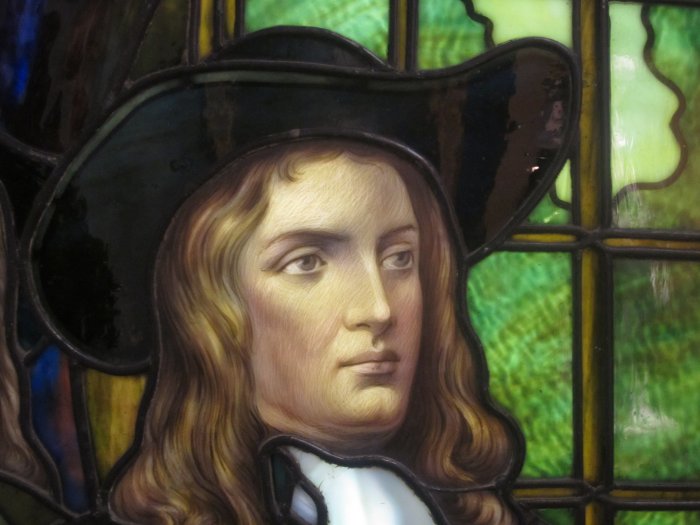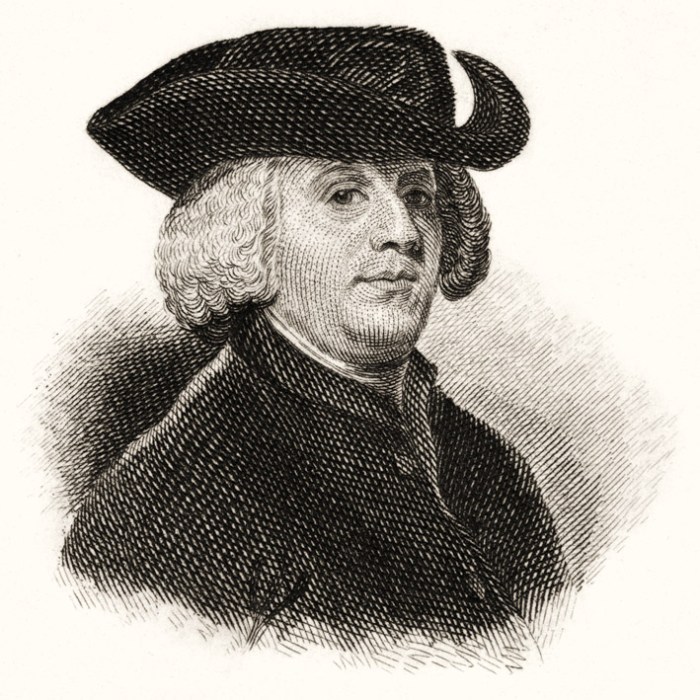English philosopher william of blank crossword – Unveiling the enigmatic figure of English philosopher William of Ockham, this discourse delves into his profound contributions to philosophy, particularly his renowned theory of nominalism and the enduring legacy of Ockham’s Razor. His groundbreaking ideas have indelibly shaped the course of Western thought, leaving an indelible mark on our understanding of reality and knowledge.
William of Ockham
William of Ockham (c. 1285-1347) was an English Franciscan philosopher and theologian. He is best known for his theory of nominalism, which argues that universals (such as “humanity” or “whiteness”) do not exist independently of the individual things that instantiate them.
Ockham’s philosophy had a profound influence on the development of Western thought, and his ideas continue to be debated today.
Major Philosophical Contributions
- Nominalism:Ockham argued that universals are merely names or mental concepts that we use to refer to groups of similar things. He denied that universals have any real existence outside of the mind.
- Theological Voluntarism:Ockham argued that God’s will is not bound by any rational principles. God is free to create the world in any way he chooses, and there is no reason why the world could not have been created differently.
- The Principle of Parsimony:Also known as Ockham’s Razor, this principle states that the simplest explanation for a phenomenon is usually the best one. Ockham argued that we should not multiply entities beyond necessity.
Ockham’s Razor

Ockham’s Razor is a principle of parsimony that states that the simplest explanation for a phenomenon is usually the best one. The principle is often used in philosophy, science, and everyday life to help us decide which of several competing theories or explanations is most likely to be true.
Examples, English philosopher william of blank crossword
- Science:Scientists use Ockham’s Razor to help them choose between competing theories. For example, if there are two theories that explain a particular phenomenon equally well, scientists will typically prefer the simpler theory.
- Philosophy:Philosophers use Ockham’s Razor to help them decide which of several competing theories is most likely to be true. For example, if there are two theories that explain the nature of reality, philosophers will typically prefer the simpler theory.
- Everyday life:We use Ockham’s Razor to help us make decisions in our everyday lives. For example, if we are trying to decide which of two restaurants to go to, we might use Ockham’s Razor to choose the simpler option (the restaurant that is closer to our home).
Limitations and Criticisms
- Ockham’s Razor is not always a reliable guide to truth. Sometimes, the simplest explanation is not the correct one.
- Ockham’s Razor can be used to justify simplistic or even absurd explanations for complex phenomena.
- Ockham’s Razor is not always applicable to all situations. In some cases, the most complex explanation is actually the correct one.
William of Sherwood

William of Sherwood (c. 1200-1266) was an English Franciscan philosopher and logician. He is best known for his work on the syllogism, a form of logical argument. Sherwood’s work on the syllogism was highly influential in the development of medieval logic, and his ideas continue to be studied today.
Contributions to Logic and Philosophy
- The Syllogism:Sherwood developed a new theory of the syllogism that was more rigorous and precise than previous theories. His theory of the syllogism was widely adopted by other logicians, and it remains the standard theory of the syllogism today.
- Modal Logic:Sherwood was one of the first philosophers to develop a theory of modal logic, which is a branch of logic that deals with the concepts of necessity and possibility. His work on modal logic was highly influential, and it helped to lay the foundation for the development of modern modal logic.
- Theories of Knowledge and Metaphysics:Sherwood also wrote on a wide range of other topics, including theories of knowledge and metaphysics. His work on these topics was less influential than his work on logic, but it nevertheless provides valuable insights into his philosophical thought.
English Franciscan Philosophers
The English Franciscan philosophers were a group of philosophers who were active in England in the 13th and 14th centuries. These philosophers were members of the Franciscan order, and they were influenced by the thought of Francis of Assisi. The English Franciscan philosophers made significant contributions to the development of medieval philosophy, and their ideas continue to be studied today.
Comparison of Major Ideas
| Philosopher | Theory of Knowledge | Metaphysics | Ethics |
|---|---|---|---|
| William of Ockham | Nominalism | Voluntarism | Utilitarianism |
| William of Sherwood | Conceptualism | Realism | Virtue ethics |
| Roger Bacon | Empiricism | Materialism | Utilitarianism |
Similarities and Differences
- Similarities:The English Franciscan philosophers shared a number of similarities in their philosophical approaches. For example, they were all interested in using logic to solve philosophical problems, and they all believed that philosophy could be used to improve the human condition.
- Differences:The English Franciscan philosophers also had a number of differences in their philosophical approaches. For example, they disagreed on the nature of universals, the existence of God, and the best way to live a good life.
Influence on Modern Philosophy

The English Franciscan philosophers had a profound influence on the development of modern philosophy. Their ideas helped to shape the development of empiricism and rationalism, two of the most important schools of thought in modern philosophy. Empiricism is the view that all knowledge is derived from experience, while rationalism is the view that all knowledge is derived from reason.
Contributions to Empiricism and Rationalism
- Empiricism:The English Franciscan philosophers were some of the first philosophers to develop an empiricist theory of knowledge. They argued that all knowledge is derived from experience, and they rejected the idea that we can have any innate knowledge.
- Rationalism:The English Franciscan philosophers also made significant contributions to the development of rationalism. They argued that reason is a powerful tool that can be used to gain knowledge about the world. They also argued that reason can be used to justify our beliefs and actions.
Continuing Influence
The ideas of the English Franciscan philosophers continue to shape contemporary philosophical thought. Their work on empiricism and rationalism is still debated today, and their ideas continue to be used to address a wide range of philosophical problems.
Quick FAQs: English Philosopher William Of Blank Crossword
What is William of Ockham’s theory of nominalism?
Nominalism asserts that universals, such as ‘humanity’ or ‘redness,’ do not exist independently of individual objects. Rather, they are mere names or mental constructs that we use to group similar objects.
How is Ockham’s Razor used in philosophy?
Ockham’s Razor is a principle of parsimony that states that the simplest explanation for a phenomenon is usually the correct one. It is often used to evaluate competing theories or hypotheses.